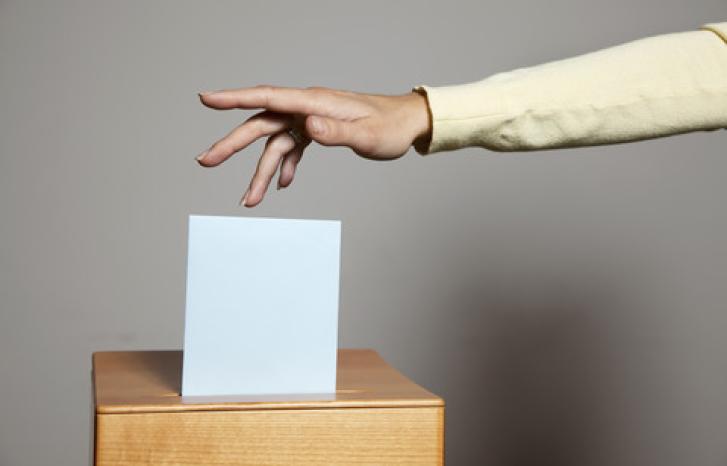Only one percent of local politicians in Norway have a minority background, even though the percentage of minorities in the general population is many times higher. What holds back the minority candidates and what can be done to get them on, and at the top of, the parties’ lists? This is the topic of Beret Bråten’s doctoral thesis. She has interviewed 20 heads of local nomination committees and leaders of the parties’ municipal council groups about the significance of being an ethnic minority when candidates are considered. Her findings are presented in the latest edition of the journal Sosiologi i dag (“Sociology Today”).
“Like other fields, local politics has particular requirements that candidates should meet. The leaders I spoke with said that requirements like dedication and commitment, good communication skills and media savvy are important in order to be assessed as a good candidate,” says Bråten.
Minorities should also speak Norwegian well and show that they “understand the Norwegian mindset”. Among other things, this means that they must support equality between the genders.
Participation = Integration?
“She stood up and fought to get a place on the council. I’d say that was a good sign that she was included in Norwegian society, that she did this as a woman,” said a local political leader about a female politician with a minority background.
This leader, who views the minority woman’s political participation as a “good sign” of integration, expresses a widely held belief, according to Bråten.
“A minority woman who ‘signs on to serve’ is often perceived as someone who is rebelling against the patriarchal culture she comes from. It is assumed that she supports Norwegian gender equality ideology and therefore – as if by magic – she is ‘integrated’,” says the researcher.
Patriarch or gender equality advocate?
Minority male politicians, however, must fight harder to convince fellow party members that they support Norwegian gender equality values.
“Whereas the minority women are seen as victims of the patriarchal culture or as rebels against it, the men are seen as representatives of that culture. To prove they support gender equality, it is not enough for them to say they do, they must be scrutinized more closely,” says Bråten.
Multi-dimensional analysis
In other words, having a minority background can act as a barrier for men, while for women it can make them more immediately appealing as political candidates. According to Bråten, this shows that what she calls multi-dimensional – or intersectional – analysis is needed to understand the opportunities and barriers that come into play.
“We don’t get the entire picture if we don’t take account of the fact that various social differences can interact. In this example, the combination of gender and ethnicity is the decisive factor, not gender or ethnicity in themselves,” says the sociologist.
What does it mean to be “Norwegian”?
Of course, to be “Norwegian”, or to “have a sense of what it means to be Norwegian”, involves more than attitudes towards gender equality. But according to Bråten, it is not easy to define what “Norwegian-ness” actually is.

“On the one hand it is crystal clear what it means, and on the other hand it is almost impossible to explain. But a kind of interviewer effect is probably also an independent factor here: During the interviews, I only sometimes asked for an explanation when the local leaders used the term ‘Norwegian’. This is probably because when I first began the interviews, I also thought the term ‘Norwegian’ was self-evident and taken for granted. A leader described a candidate as a person with ‘a Norwegian way of thinking’, someone who has ‘decided to become Norwegian and act accordingly’. He reads Norwegian history and is active on a sports team. Several talked about ‘Norwegian-ness’ as being a choice, for example, that a person has ‘made himself into a Norwegian’.”
Bråten believes this illustrates the relational aspect of “Norwegian-ness”.
“‘Norwegian’ is something that a person can be made into or that she can make herself into. Even though the majority obviously has the power to establish the definition, the concept of ‘Norwegian’ is not set in stone. It varies and changes over time.”
See also: Norwegian schools reproduce racism and gender stereotypes
Socially adept
Bråten says that skin colour does not appear to be an important criterion. In her interview material, she sees a tendency to refer to second-generation immigrants with dark skin as “completely Norwegian” because they speak perfect Norwegian and master the social codes.
“To be described as Norwegian means that a person is considered to be socially adept, and many different backgrounds can potentially be included in this definition,” says Bråten.
None of the leaders in Bråten’s sample referred to anyone as “un-Norwegian”. But the issue of culture was usually raised when they discussed practices and reactions that they felt were foreign. For example, one of the leaders said the following about representatives who work actively to get a large number of individual votes:
“It has to do with culture. A lot with culture. It has to do with the immigrants’ views of politics.”
Culture becomes an explanation
Culture is actualized the most when gender becomes the focus of discussion. Many leaders find that female representatives with a minority background, whom they would like to place on the list of candidates, are difficult to “get hold of”. In these cases, they easily resort to culture as an explanation:
“It’s so foreign for them to assume this kind of responsibility. I think it has a lot to do with cultural differences. (...) of course there are many different groups of immigrants. But (...) some cultures discourage their women from exposing themselves in the political sphere. They are supposed to remain hidden – and they don’t take part in public activities.”
Bråten believes that although this kind of explanation may be an attempt to understand, it can nonetheless have an excluding and stigmatizing effect.
“Culture quickly becomes a stigma that clings to the individual just as much as skin colour. It becomes an explanation that does not lead to greater understanding since it is only applied at the group level. Individual motives remain unexplained,” says Bråten.
Translated by Connie Stultz.
In the past few years, sociologist Beret Bråten has been a research fellow at the Centre for Gender Research at the University of Oslo. Her doctoral project in political science is entitled Muligheter og barrierer for rekruttering og avansement. Integrering av representanter med etnisk minoritetsbakgrunn i norsk politikk (“Opportunities for and barriers to recruitment and advancement: Integration of representatives with an ethnic minority background in Norwegian politics”).



